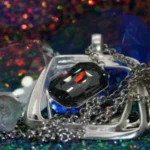Does Your Land Rover Overheat All The Time? Remain Calm! We Are Here To Assist You In Comprehending The Causes Of This Annoying Problem And To Provide You Workable Answers.
We’ll explore the typical reasons of Land Rover overheating in this blog post, along with several DIY solutions. We’ll also stress how crucial it is to locate a trustworthy European auto repair shop, whether you’re in the USA or anywhere else, in order to properly handle your Land Rover’s overheating issues.
Let’s get going so you can drive your Land Rover again without worrying about overheating!
Common Causes of Land Rover Overheating
Low Coolant Levels: Coolant levels below the required amount in the radiator may lead to insufficient cooling of engine, and hence overheating. Keep checking the coolant reservoir and add a combination of water, and coolant if necessary.
Coolant Leaks: The cooling system leaks such as hoses, radiator water pump and head gasket can lead to loss of coolant which eventually leads to overheating. Check the cooling system for any leaks, as evidenced by puddles under your vehicle or coolant stains in sight.
Faulty Thermostat: If the thermostat is malfunctioning, it can not regulate coolant flow correctly and as a result leads to overheating of the engine. If the thermostat is stuck closed or open, then replace it to stop operating as intended.
Blocked Radiator: In the case of radiator fins, debris, dirt or bugs can accumulate and block air flow limiting cooling efficiency. Regularly clean the radiator with a soft brush or compressed air to clear any blockages.
Faulty Water Pump: The water pump is the one that supplies coolant to move through both engine and radiator. A worn out or a failing water pump will cause poor coolant circulation and overheating. Water pump replacement should be done if signs of wear or leakage are observed.
Cooling Fan Issues: Defects in the electric cooling fan or fan clutch may prevent adequate airflow through the radiator, particularly at low speeds and idle. This allows overheating to occur. Check the operation of the cooling fan and replace faulty parts if any.
Easy Fixes for Overheating
Top Up Coolant: If the coolant level is low in the reservoir, add a mixture of distilled water and coolant. As per the manufacturer’s recommendations, use appropriate coolant type and mixture ratio.
Inspect for Leaks: Carefully examine the cooling system for any traces of leaks, such as wet spots or coolant stains. Fix or replace broken hoses, radiator, water pump and head gasket as required to stop further leaks.
Replace Thermostat: Replace it with a new thermostat if the latter is stuck closed or open, resulting in overheating problems. Make sure that the replacement thermostat is suitable for your Land Rover’s engine and operating temperature range.
Clean Radiator: Clean out any debris, dirt or bugs that are blocking the radiator fins to increase flow and cooling efficiency. The radiator surface and fins can be cleaned with a soft brush or compressed air in order to do so gently.
Check Water Pump: Check the water pump for wear, leakage or bearing failure. If any abnormalities are observed, replace the water pump to restore normal coolant circulation.
Test Cooling Fan: The fan or the electric cooling system can be verified by running the engine and making sure that the fan engages. Replace any defective components to ensure proper air circulation in the radiator.
Steps to Prevent Land Rover Overheating
Frequent Visual Inspection: Look for signs of wear, leaks or damage on any components in the cooling system: thermostat water pump, radiator and hoses.
Coolant Flush: In order to remove impurities and replenish corrosion inhibitors in the cooling system, schedule regular coolant flushes according to the manufacturer’s recommendations.
Maintain Clean Radiator: Regular cleaning of the radiator prevents the accumulation of dirt and other debris that may obstruct airflow, thus reducing cooling efficiency.
Prevent Overloading: Towing heavy weights above the recommended capacity or overloading your Land Rover may cause strain on the engine and lead to overheating.
Conclusion
There are numerous causes of overheating such as low coolant levels, leaks, water pumps that do not work properly or have been damaged and radiators which may be clogged by debris or cooling fan problems. It is very important to understand these issues and carry out preventive measures in order to ensure the car remains reliable, cool while driving around the States. For the purpose of achieving maximum cooling system efficiency, regular maintenance checks and quick repairs along with proper coolant management are required. If overheating problems persist, consult Houston auto repair or Land Rover specialist for additional diagnostics. Preventive maintenance will ensure that your Land Rover can safely traverse the varied American terrain and climate.







